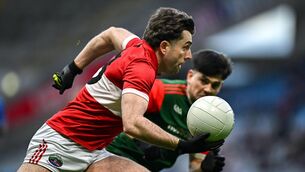Where have all the young managers gone?
There’s a clear and present danger of ageism if you don’t phrase it properly, but you can’t pussyfoot around it either. Why are most inter- hurling managers now in their fifties or older?
John Meyler, Tony Considine, Brian Cody and Ger Loughnane are in their fifties. Gerald and Justin McCarthy, Richie Bennis and Babs Keating are a decade further on. Nothing unusual in that until you look at the likes of Pat O’Shea, Colm Coyle and Paul Bealin in football.











